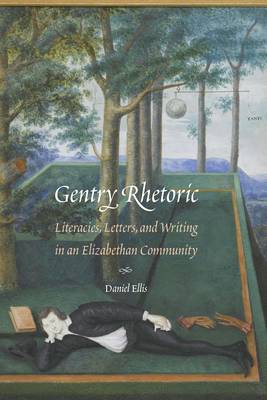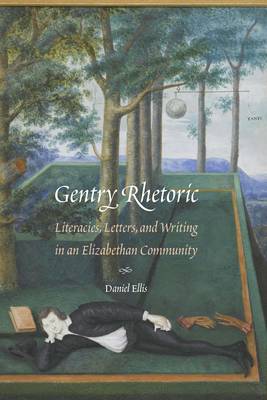
Je cadeautjes zeker op tijd in huis hebben voor de feestdagen? Kom langs in onze winkels en vind het perfecte geschenk!
- Afhalen na 1 uur in een winkel met voorraad
- Gratis thuislevering in België vanaf € 30
- Ruim aanbod met 7 miljoen producten
Je cadeautjes zeker op tijd in huis hebben voor de feestdagen? Kom langs in onze winkels en vind het perfecte geschenk!
- Afhalen na 1 uur in een winkel met voorraad
- Gratis thuislevering in België vanaf € 30
- Ruim aanbod met 7 miljoen producten
Zoeken
€ 110,45
+ 220 punten
Omschrijving
Gentry Rhetoric examines the full range of influences on the Elizabethan and Jacobean genteel classes' practice of English rhetoric in daily life. Daniel Ellis surveys how the gentry of late sixteenth- and early seventeenth-century Norfolk wrote to and negotiated with each other by employing Renaissance humanist rhetoric, both to solidify their identity and authority in resisting absolutism and authoritarianism, and to transform the political and social state. The rhetorical training that formed the basis of their formal education was one obvious influence. Yet to focus on this training exclusively allows only a limited understanding of the way this class developed the strategies that enabled them to negotiate, argue, and conciliate with one another to such an extent that they could both form themselves as a coherent entity and become the primary shapers of written English's style, arrangement, and invention. Gentry Rhetoric deeply and inductively examines archival materials in which members of the gentry discuss, debate, and negotiate matters relating to their class interests and political aspirations. Humanist rhetoric provided the bedrock of address, argumentation, and negotiation that allowed the gentry to instigate a political and educational revolution in seventeenth- and eighteenth-century England.
Specificaties
Betrokkenen
- Auteur(s):
- Uitgeverij:
Inhoud
- Aantal bladzijden:
- 234
- Taal:
- Engels
- Reeks:
Eigenschappen
- Productcode (EAN):
- 9781496221186
- Verschijningsdatum:
- 1/12/2022
- Uitvoering:
- Hardcover
- Formaat:
- Genaaid
- Afmetingen:
- 152 mm x 229 mm
- Gewicht:
- 512 g

Alleen bij Standaard Boekhandel
+ 220 punten op je klantenkaart van Standaard Boekhandel
Beoordelingen
We publiceren alleen reviews die voldoen aan de voorwaarden voor reviews. Bekijk onze voorwaarden voor reviews.









